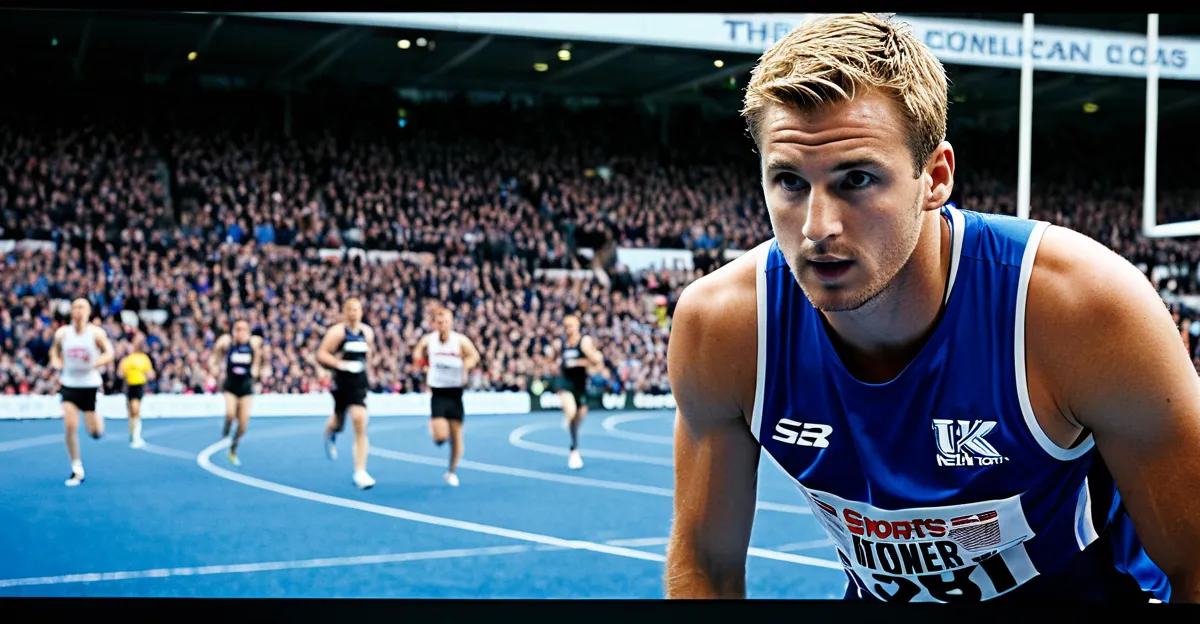Immediate Effects of UK Sports News on Athlete Performance
UK sports media influence plays a critical role in shaping athletes’ mental state just before and during competition. When breaking news and headlines spotlight an athlete, the sports news impact can sharply alter their focus and emotional balance. For example, a sudden positive headline praising an athlete’s recent achievements may boost their confidence and motivation. Conversely, intense media criticism often raises stress levels and anxiety, potentially hindering performance.
Athlete reactions to UK sports news vary widely. Some thrive under public scrutiny, using media praise to fuel determination. Others may struggle, feeling overwhelmed by negative coverage or public opinion. This duality highlights how media influence is not just external noise but a psychological factor athletes must manage.
Also read : How Can UK Sports Impact National Unity and Community Cohesion?
Notable UK athletes have publicly acknowledged the direct effects of media coverage on their performance. These anecdotes reveal how the pressure of headlines and commentary can create an urgent need for mental resilience. Understanding this dynamic is essential for coaches, sports psychologists, and athletes alike, as managing media influence can be as crucial as physical training. This awareness supports strategies to harness positive aspects of UK sports media influence while mitigating its challenges.
Psychological and Emotional Effects Driven by Media Coverage
Media coverage plays a significant role in shaping the psychological impact on athletes. Persistent attention, especially during high-pressure events, can intensify stress and anxiety. Athletes may experience both short- and long-term effects, from momentary distraction to sustained mental strain that affects their performance and wellbeing. The constant scrutiny often leads to heightened self-awareness, sometimes resulting in diminished confidence or increased pressure to meet expectations.
Also to see : What Changes Can Revive UK Sports to Its Former Glory?
Experts in sports journalism and psychology emphasize the importance of effective coping mechanisms. Trainers and sports psychologists recommend tailored strategies such as mindfulness, media training, and mental resilience exercises to help athletes manage intrusive commentary. Real-time social media responses are especially challenging—they expose athletes to immediate public opinion, which can be overwhelmingly negative or misleading. This constant barrage can wear down emotional resilience, causing feelings of isolation or vulnerability.
Understanding these effects is vital for developing supportive environments. Integrating psychological support within sports organizations ensures athletes receive comprehensive care beyond physical training. This holistic approach aims to strengthen mental health amidst relentless media attention, fostering longevity in athletic careers and personal wellbeing.
Positive Influences: Media as a Motivational and Support Tool
The impact of media motivation in sports cannot be overstated. UK sports news often acts as a powerful catalyst, inspiring athletes by highlighting their achievements. When athletes see their hard work validated through positive publicity, it reinforces their commitment and boosts self-confidence. This cycle of acknowledgment creates an environment where success feels attainable and valued.
Athletes and coaches actively leverage such positive publicity to enhance team morale. For example, a well-timed feature on a player’s progress or a coach’s strategic insight not only elevates individual spirits but fosters collective enthusiasm. This internal boost often translates into improved performances on the field. Additionally, positive media stories tend to attract greater fan engagement—this public support further motivates athletes.
Fans’ reactions, fueled by uplifting reports, generate a feedback loop of encouragement. Supportive coverage fosters a sense of community around teams, motivating players to meet and exceed expectations. In this way, the media serves as both a mirror and a megaphone for athlete inspiration, proving essential in the broader sports ecosystem.
Negative Pressures and Performance Challenges Linked to Coverage
Media pressure often intensifies when UK sports news focuses on sensationalism. This environment creates unrealistic expectations that can heighten sports anxiety for athletes. When media narratives emphasize criticism or controversy, athletes face intense public scrutiny, which exacerbates stress.
Athletes report that constant negative press can lead to a vicious cycle: increased anxiety worsens performance, which then fuels further media criticism. This negative effect not only impacts mental health but can also diminish focus and confidence during competition.
To counteract these challenges, many athletes employ specific strategies. Psychological coaching and cognitive-behavioral techniques help them manage pressure and maintain composure. Some rely on support networks, including teammates and family, to stay grounded despite media negativity. Additionally, controlled media interactions aim to reduce the emotional toll of sensationalist coverage.
Understanding these dynamics is crucial to appreciating how sports anxiety is linked to external factors like media pressure, especially in the UK where media intensity is high. By addressing these pressures thoughtfully, athletes can better protect their mental wellbeing and sustain peak performance.
Expert and Athlete Perspectives on Navigating Media Influence
Understanding how media affects athletes requires insights from expert commentary, athlete quotes, and coach insights. Prominent athletes often share their experiences managing media pressure. For instance, one UK athlete highlighted how focusing on internal goals rather than external opinions helped maintain performance under media scrutiny. Such athlete quotes reveal the emotional toll media can impose but also emphasize resilience strategies.
Sports psychologists and managers recommend practical approaches to media interaction. They suggest media training programs focusing on communication skills and boundary setting, helping athletes control narratives without being overwhelmed. This expert commentary underscores the importance of mental preparation equal to physical training.
Case studies showcasing varied outcomes illustrate how media influence can both impair and empower athletes. In some cases, excessive media hype led to performance anxiety, whereas balanced media presence fostered motivation and public support. Coaches often advocate tailored media strategies aligned with individual athlete needs, reflecting a nuanced understanding from coach insights.
By combining these perspectives, athletes can better navigate media influence, turning potential pitfalls into opportunities for growth.


